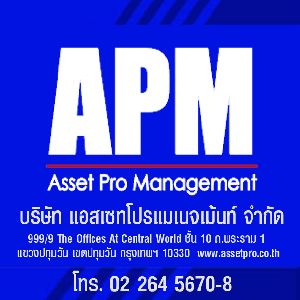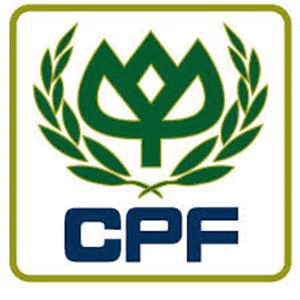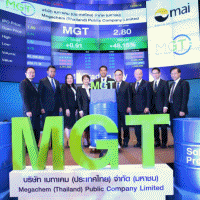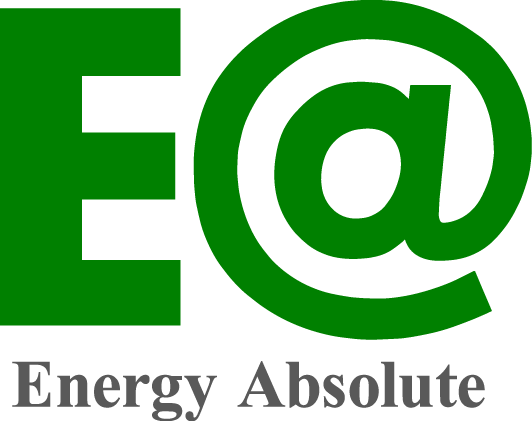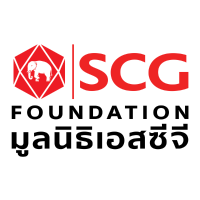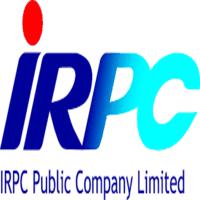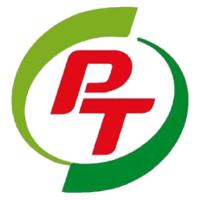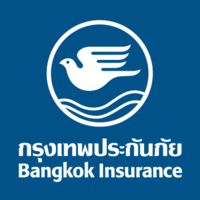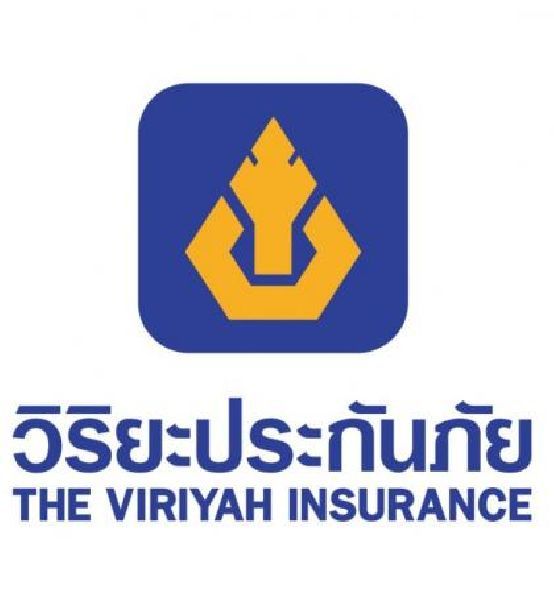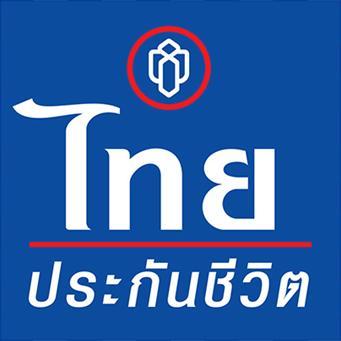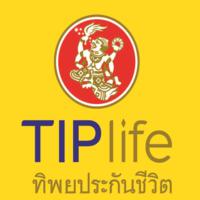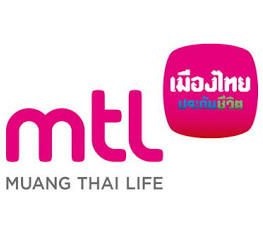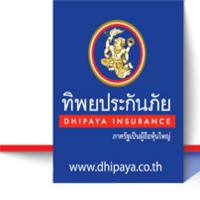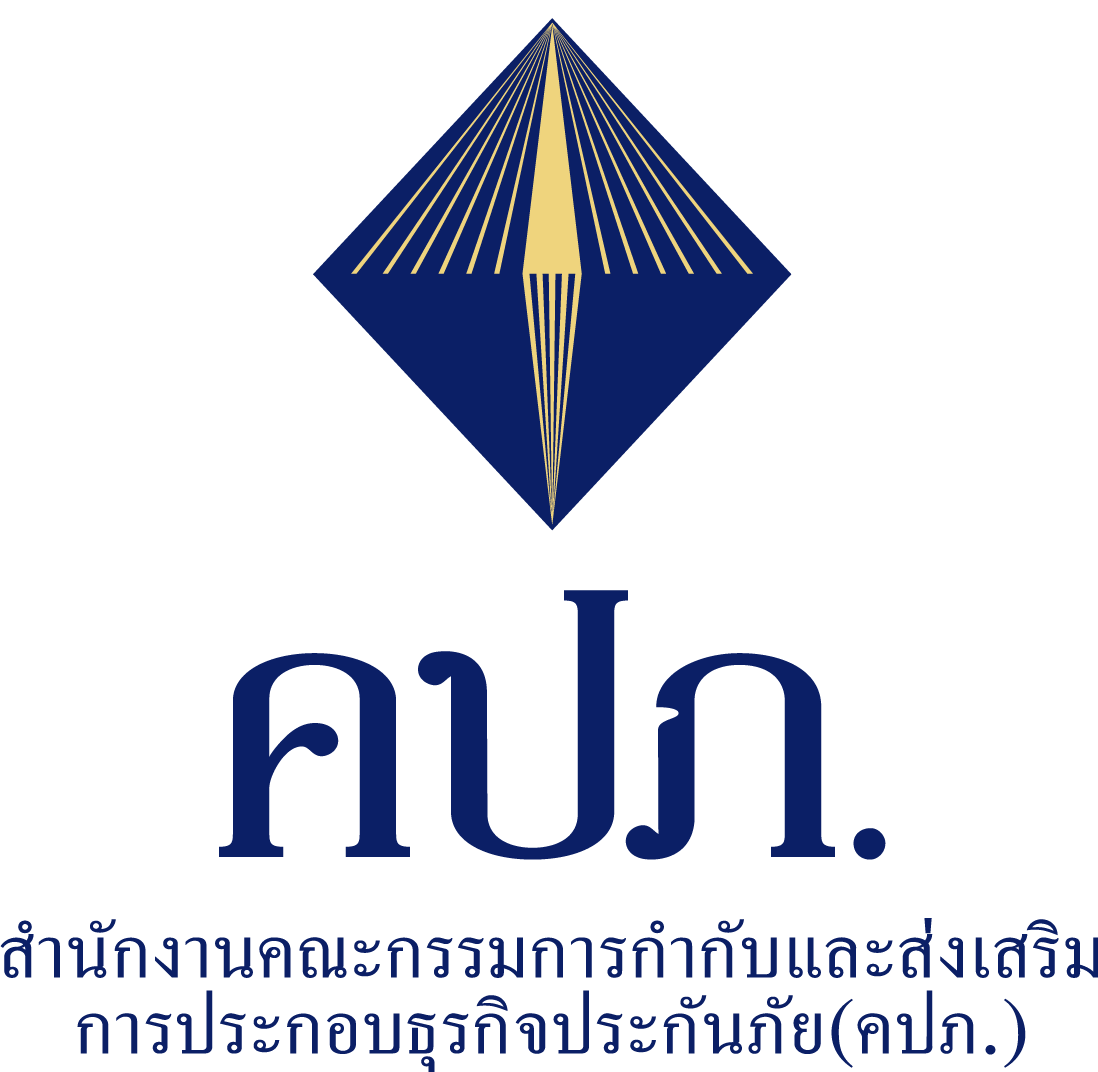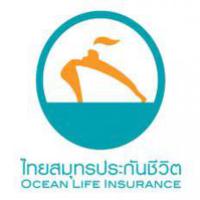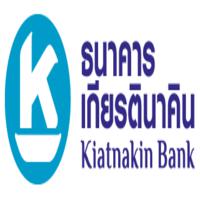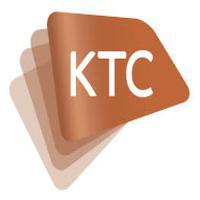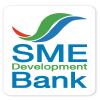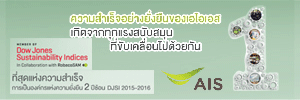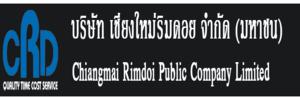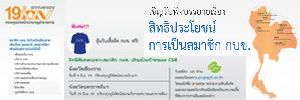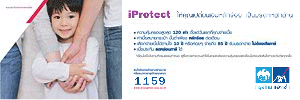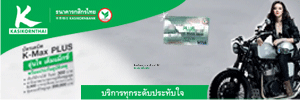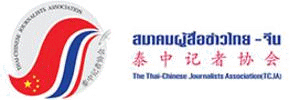ฟิทช์ เรทติ้งส์ - กรุงเทพฯ/สิงคโปร์ - 10 เมษายน 2562: บริษัท ฟิทช์ เรทติ้งส์ (ประเทศไทย) จำกัด ประกาศปรับแนวโน้มอันดับเครดิตของบริษัท ไทยเบฟเวอเรจ จำกัด (มหาชน) หรือ ThaiBev เป็นลบจากมีเสถียรภาพ ในขณะเดียวกัน ฟิทช์ประกาศคงอันดับเครดิตสากลระยะยาวสกุลเงินต่างประเทศ (International Long-Term Foreign-Currency Issuer Default Rating) ของบริษัทฯ ที่ ‘BBB-’ อันดับเครดิตภายในประเทศ (National Rating) ระยะยาว ที่ ‘AA(tha)’ และอันดับเครดิตภายในประเทศระยะยาวของหุ้นกู้ไม่มีประกันและไม่ด้อยสิทธิ ที่ ‘AA(tha)’
การปรับแนวโน้มอันดับเครดิตเป็นลบ สะท้อนถึงความเสี่ยงที่การปรับลดอัตราส่วนหนี้สินของบริษัทฯ อาจมีความล่าช้ากว่าที่ฟิทช์เคยประมาณการไว้ เนื่องจากความต้องการเครื่องดื่มแอลกอฮอล์ภายในประเทศปรับตัวลดลงในช่วงปีงบการเงินสิ้นสุดเดือนกันยายน 2561 (ปีงบการเงิน 2561) หลังจากที่บริษัทฯ มีการเข้าซื้อกิจการหลายกิจการในไตรมาสแรกของปีงบการเงิน 2561 ซึ่งเป็นเหตุให้อัตราส่วนหนี้สินฯ เพิ่มสูงขึ้น
ปัจจัยที่มีผลต่ออันดับเครดิต
การปรับลดอัตราส่วนหนี้สินล่าช้ากว่าที่คาด – ฟิทช์คาดว่าอัตราส่วนหนี้สิน ซึ่งวัดโดยอัตราส่วนหนี้สินสุทธิที่ปรับปรุงแล้วต่อกระแสเงินสดจากการดำเนินงานก่อนการเปลี่ยนแปลงของเงินทุนหมุนเวียน (FFO adjusted net leverage) ของ ThaiBev จะยังคงอยู่ในระดับสูง ประมาณ 4.5 – 5.5 เท่า ณ สิ้นปีงบการเงิน 2562 - 2564 ซึ่งสูงกว่าระดับที่ฟิทช์เคยคาดการณ์ว่าจะอยู่ที่ 4.0 เท่า ภายในสิ้นปีงบการเงิน 2564 ถึงแม้ว่าจะเป็นการลดลงจากระดับสูงสุดที่ 8.3 เท่า ณ สิ้นปีงบการเงิน 2561 หลังจากการเข้าซื้อบริษัท Saigon Beer - Alcohol - Beverage Corporation (Sabeco) ในประเทศเวียดนาม บริษัท Myanmar Supply Chain and Marketing Services Co., Ltd และบริษัท Myanmar Distillery Co., Ltd. (รวมเรียกว่า Grand Royal Group หรือ GRG) ในประเทศเมียนมาร์ และร้าน KFC จำนวน 252 ร้านในประเทศไทย
ภายหลังจากการเข้าซื้อกิจการขนาดใหญ่ที่ผ่านมา ThaiBev ได้แสดงให้เห็นถึงความสามารถและการให้ความสำคัญต่อการลดระดับหนี้สิน และการรักษาอัตราส่วนหนี้สินให้อยู่ในระดับต่ำ สำหรับการเข้าซื้อกิจการครั้งล่าสุดที่ผ่านมา บริษัทฯ เน้นการสร้างกระแสเงินสดจากการดำเนินงานของ Sabeco ให้สูงขึ้นเพื่อลดอัตราส่วนหนี้สินลง โดยยังไม่มีการประกาศแผนการลดหนี้อื่นๆ ThaiBev อาจใช้เวลาในการปรับลดอัตราส่วนหนี้สินลงให้ต่ำกว่า 4.0 เท่าได้เร็วขึ้น (อัตราส่วนหนี้สินที่เกินกว่า 4.0 เท่า เป็นระดับที่ฟิทช์จะพิจารณาปรับลดอันดับเครดิตของบริษัทฯ) หากธุรกิจใหม่ที่ซื้อมามีประสิทธิภาพในการดำเนินงานเพิ่มสูงขึ้น หรือบริษัทฯ มีการบริหารโครงสร้างเงินทุน หรือการปรับโครงสร้างสินทรัพย์
การฟื้นตัวของความต้องการสินค้าในประเทศอย่างค่อยเป็นค่อยไป –ฟิทช์ คาดว่าความต้องการอาหารและเครื่องดื่มในประเทศที่เติบโตในไตรมาสแรกของปีงบการเงิน 2562 จะเติบโตต่อเนื่องในช่วงสองถึงสามปีข้างหน้า โดยได้รับการสนับสนุนจากการฟื้นตัวของกิจกรรมทางเศรษฐกิจและการออกสินค้าใหม่ๆ ปริมาณการจำหน่ายเบียร์ภายในประเทศของสำนักงานเศรษฐกิจอุตสาหกรรมมีการเพิ่มขึ้นในอัตราร้อยละ 8 ในช่วงเดือนตุลาคม 2561 ถึงเดือนกุมภาพันธ์ 2562 (ห้าเดือนแรกของปีงบการเงิน 2562) เทียบกับช่วงเดียวกันของปีก่อน หลังจากที่ลดลงร้อยละ 12 ในช่วงปีงบการเงิน 2561 ในขณะที่ปริมาณการจำหน่ายเครื่องดื่มไม่มีแอลกอฮอล์ ได้แก่ น้ำดื่ม โซดา น้ำอัดลม และน้ำผลไม้ ก็เติบโตขึ้นเช่นกันในช่วงห้าเดือนแรกของปีงบการเงิน 2562 ในอัตราร้อยละ 2, ร้อยละ 4, ร้อยละ 9 และร้อยละ 15 ตามลำดับ
อัตราส่วนกำไรที่ฟื้นตัวอย่างค่อยเป็นค่อยไป – ฟิทช์คาดว่า กำไรจากการดำเนินงานก่อนดอกเบี้ยจ่าย ภาษี ค่าเสื่อมราคา และค่าตัดจำหน่าย (EBITDA) ของ ThaiBev จะเพิ่มขึ้นมาอยู่ในระดับสูงกว่า 4.0 หมื่นล้านบาท ในปีงบการเงิน 2562 จาก 3.3 หมื่นล้านบาท ในปีงบการเงิน 2561 อัตราส่วน EBITDA ต่อรายได้สุทธิหลังหักภาษีสรรพสามิต (EBITDA margin) น่าจะเพิ่มขึ้นเป็นร้อยละ 27-28 ในปีงบการเงิน 2562 ดีขึ้นจากร้อยละ 24 ในปีงบการเงิน 2561 ฟิทช์มองว่าการฟื้นตัวดังกล่าวจะเป็นการฟื้นตัวในทุกธุรกิจหลัก โดยในปีงบการเงิน 2562 กระแสเงินสดจากการรับรู้ผลประกอบการเต็มปีของ Sabeco และร้าน KFC ที่ซื้อมาเมื่อเดือนธันวาคม 2560 รวมถึงการขยายสาขาใหม่ของ KFC ในปี 2561 จะช่วยเพิ่มการเติบโตของยอดขายและกำไรของบริษัทฯ
สถานะทางธุรกิจที่ดีขึ้น – การเข้าซื้อกิจการในประเทศเวียดนามและเมียนมาร์ของ ThaiBev ช่วยขยายขนาดธุรกิจของบริษัทฯ และช่วยให้มีการกระจายความเสี่ยงทางภูมิศาสตร์ที่ดีขึ้น โดยสัดส่วน EBITDA จากประเทศไทยน่าจะลดลงเหลือต่ำกว่าร้อยละ 80 ในปีงบการเงิน 2562 จากเดิมที่สูงกว่าร้อยละ 90 ในปีงบการเงิน 2560 อันดับเครดิตของ ThaiBev ได้รับการสนับสนุนจากการเป็นผู้นำในตลาดเครื่องดื่มที่มีแอลกอฮอล์ในประเทศไทย เมียนมาร์ และเวียดนาม ธุรกิจสุราภายในประเทศยังคงเป็นจุดแข็งที่สำคัญของบริษัทฯ ด้วยส่วนแบ่งทางการตลาดกว่าร้อยละ 90 การมีอุปสรรคในการเข้าสู่อุตสาหกรรมที่สูง และ EBITDA Margin อยู่ในระดับสูงกว่าร้อยละ 50 นอกจากนี้ ตราสินค้าที่เป็นที่ยอมรับในตลาดและเครือข่ายการจัดจำหน่ายสินค้าที่กว้างขวางก็เป็นปัจจัยสนับสนุนที่สำคัญต่อความแข็งแกร่งทางธุรกิจของ ThaiBev
กิจการที่บริษัทฯ เข้าซื้อทั้งสองบริษัท ได้แก่ Sabeco และ GRG ต่างเป็นผู้นำตลาดในประเทศของตนเอง โดย Sabeco มีส่วนแบ่งทางการตลาดในตลาดเบียร์ของประเทศเวียดนามวัดจากปริมาณการขายที่ประมาณร้อยละ 40 ในช่วงสองถึงสามปีที่ผ่านมา ในขณะที่ GRG เป็นผู้นำตลาดวิสกี้ในประเทศเมียนมาร์ โดยมีส่วนแบ่งทางการตลาดที่ประมาณร้อยละ 70 เวียดนามเป็นตลาดเบียร์ที่ใหญ่ที่สุดในภูมิภาคเอเชียตะวันออกเฉียงใต้ และเป็นหนึ่งในห้าประเทศที่มีปริมาณการบริโภคเบียร์สูงที่สุดในภูมิภาคเอเชียแปซิฟิค ฟิทช์เชื่อว่าตลาดเบียร์ในเวียดนามมีศักยภาพในการเติบโตสูง เนื่องจากความนิยมในการดื่มเบียร์และเป็นประเทศที่มีอายุเฉลี่ยของประชากรค่อนข้างน้อย ส่วนตลาดสุราในประเทศเมียนมาร์ การบริโภควิสกี้ยังคงน้อยกว่าการบริโภคสุราขาว และมีการแข่งขันอยู่ในระดับปานกลางระหว่างผู้ผลิตรายใหญ่ 3 รายในประเทศ
ส่วนของผู้ถือหุ้นส่วนน้อยใน Sabeco– ในการพิจารณาอันดับเครดิตของ ThaiBev ฟิทช์ มองว่า ThaiBev และ Sabeco มีความสัมพันธ์ในด้านการดำเนินงานและกลยุทธ์ทางธุรกิจในระดับสูง แม้ว่าบริษัทฯ จะถือหุ้นใน Sabeco ในสัดส่วนร้อยละ 53.6 ฟิทช์พิจารณารวมสถานะการทางการเงินและผลการดำเนินงานทั้งหมดของ Sabeco เข้ามาเป็นส่วนหนึ่งของ ThaiBev ซึ่งในการคำนวณกระแสเงินสดจากการดำเนินงานก่อนการเปลี่ยนแปลงของเงินทุนหมุนเวียน (FFO) จะนำเงินปันผลที่จ่ายให้กับผู้ถือหุ้นส่วนน้อยมาหักออก นอกจากนี้ ในกรณีนี้ ฟิทช์ยังถือว่าเงินสดในมือของ Sabeco (จำนวนประมาณ 1.7 หมื่นล้านบาท ณ สิ้นปีงบการเงิน 2561) ในสัดส่วนตามการถือหุ้นของผู้ถือหุ้นส่วนน้อย เป็นเงินสดที่มีภาระผูกพันซึ่งไม่สามารถนำมาเป็นรายการหักในการคำนวณหนี้สินสุทธิได้
การกำหนดอันดับเครดิตโดยสรุป
อันดับเครดิตของ ThaiBev สะท้อนถึงสถานะความเป็นผู้นำในตลาดสุราและเบียร์ในประเทศไทย เวียดนาม และเมียนมาร์ ซึ่งช่วยชดเชยการที่บริษัทฯ มีการกระจายตัวทางภูมิศาสตร์ที่น้อยกว่าและมีขนาดธุรกิจที่เล็กกว่า เมื่อเปรียบเทียบกับบริษัทผู้ผลิตเครื่องดื่มแอลกอฮอล์อื่นๆ ทั่วโลกที่ฟิทช์จัดอันดับเครดิตในช่วงอันดับเครดิตใกล้เคียงกัน โดยสถานะทางธุรกิจของ ThaiBev ใกล้เคียงกับ Molson Coors Brewing Company (Molson Coors, อันดับเครดิต BBB- แนวโน้มเครดิตมีเสถียรภาพ) ถึงแม้ว่า Molson Coors จะมีขนาดธุรกิจที่ใหญ่กว่า และมีการกระจายตัวทางภูมิศาสตร์ที่ดีกว่า แต่ก็มีความกระจุกตัวในตลาดอเมริกาเหนือ ThaiBev มีสถานะทางการเงินที่ใกล้เคียงกับ Molson Coors โดยทั้งคู่มีอัตราส่วนหนี้สินที่สูงเนื่องจากการเข้าซื้อกิจการโดยใช้หนี้เป็นแหล่งเงินทุน อย่างไรก็ตาม ความเสี่ยงในการปรับลดอัตราส่วนหนี้สินที่อาจจะล่าช้าออกไปของ ThaiBev ส่งผลให้บริษัทฯ มีแนวโน้มอันดับเครดิตเป็นลบ
เมื่อเปรียบเทียบกับบริษัทที่ฟิทช์จัดอันดับเครดิตภายในประเทศ สถานะทางเครดิตของ ThaiBev อยู่ในระดับต่ำกว่า บริษัท แอดวานซ์ อินโฟร์ เซอร์วิส จำกัด (มหาชน) (AIS, อันดับเครดิต ‘AA+(tha)’ แนวโน้มอันดับเครดิตมีเสถียรภาพ) ซึ่งมีสถานะทางธุรกิจใกล้เคียงกัน โดยทั้งสองบริษัทครองตำแหน่งผู้นำในอุตสาหกรรมของตน โดย ThaiBev มีการกระจายความเสี่ยงทางภูมิศาสตร์ที่ดีกว่า อันดับเครดิตของ ThaiBev ต่ำกว่าของ AIS หนึ่งอันดับ เนื่องจากความเสี่ยงทางการเงินที่สูงกว่า
เมื่อเปรียบเทียบกับบริษัท โทเทิ่ล แอ็คแซส คอมมูนิเคชั่น จำกัด (มหาชน) (DTAC, อันดับเครดิต AA(tha) แนวโน้มเครดิตมีเสถียรภาพ ซึ่งมีสถานะทางเครดิตโดยลำพังที่ AA-(tha)) และบริษัท พีทีที โกลบอล เคมิคอล จำกัด (มหาชน) (PTTGC, อันดับเครดิต AA(tha) แนวโน้มเครดิตมีเสถียรภาพ ซึ่งมีสถานะทางเครดิตโดยลำพังที่ AA-(tha)) ThaiBev มีสถานะทางธุรกิจที่แข็งแกร่งกว่ามาก โดย ThaiBev มีฐานะความเป็นผู้นำตลาด มีกระแสเงินสดสุทธิ (Free Cash flow หรือ FCF) ที่แข็งแกร่ง โดยอัตราส่วน FCF ต่อรายได้สุทธิ (หลังหักภาษีสรรพสามิต) อยู่ที่ระดับร้อยละ 8 รวมถึงการเผชิญกับการแข่งขันทางธุรกิจที่ต่ำกว่า DTAC ต้องเผชิญการแข่งขันที่สูงในธุรกิจโทรคมนาคมของไทย
ในขณะที่ PTTGC มีกระแสเงินสดจากการดำเนินงานที่มีความผันผวนตามวัฏจักรของธุรกิจมากกว่า ThaiBev ซึ่งเป็นผลจากความผันผวนของราคาสินค้าโภคภัณฑ์และอัตรากำไรในธุรกิจการกลั่นน้ำมัน ทั้ง DTAC และ PTTGC มี FCF เป็นลบเป็นส่วนใหญ่ตลอดช่วงวัฏจักรของธุรกิจ ซึ่งเป็นผลมาจากค่าใช้จ่ายลงทุนที่สูงในธุรกิจโทรคมนาคม และความผันผวนของความต้องการเงินทุนหมุนเวียนในธุรกิจปิโตรเคมี ดังนั้น ThaiBev จึงได้รับการจัดอันดับเครดิตที่สูงกว่าหนึ่งระดับ อย่างไรก็ตาม หาก ThaiBev ไม่สามารถลด FFO adjusted net leverage ให้อยู่ในระดับต่ำกว่า 4.0 เท่าได้ อาจส่งผลให้อันดับเครดิตภายในประเทศของบริษัทฯ ลดลงเกินกว่าหนึ่งอันดับได้
สมมุติฐานที่สำคัญ
สมมุติฐานที่สำคัญของฟิทช์ที่ใช้ในการประมาณการ
- รายได้สุทธิ (ไม่รวมภาษีสรรพสามิต) จากธุรกิจในประเทศไทยเติบโตขึ้นในอัตราร้อยละ 10-12 ในปีงบการเงิน 2562 และในอัตราร้อยละ 2-5 ต่อปีในปีงบการเงิน 2563-2564
- รายได้สุทธิ (ไม่รวมภาษีสรรพสามิต) ของ GRG และ Sabeco ที่ระดับ 5.0 - 6.0 หมื่นล้านบาท ต่อปี ในปีงบการเงิน 2562-2564
- EBITDA margin (โดยคิดเป็นสัดส่วนต่อรายได้สุทธิ) สำหรับธุรกิจในประเทศไทย ดีขึ้นมาอยู่ในระดับร้อยละ 30-33 ในปีงบการเงิน 2562-2564 โดย EBITDA margin อยู่ในระดับร้อยละ 50-55 สำหรับธุรกิจสุรา; ร้อยละ 15-20 สำหรับธุรกิจเบียร์; ต่ำกว่าร้อยละ 3 สำหรับธุรกิจเครื่องดื่มที่ไม่มีแอลกอฮอล์; ร้อยละ 13-15 สำหรับธุรกิจอาหาร ในปีงบการเงิน 2562-2564
- EBITDA margin (โดยคิดเป็นสัดส่วนต่อรายได้สุทธิ) ของ GRG ลดลงจากค่าใช้จ่ายทางการตลาดที่สูงขึ้น ในปีงบการเงิน 2562-2564
- EBITDA margin (โดยคิดเป็นสัดส่วนต่อรายได้สุทธิ) ของ Sabeco อยู่ที่ระดับ ร้อยละ 17-19 ในปีงบการเงิน 2562-2564
- ค่าใช้จ่ายเพื่อการลงทุน 5.5-7.5 พันล้านบาทต่อปี ในปีงบการเงิน 2562-2564 (ไม่รวมการเข้าซื้อกิจการ)
- ลดอัตราการจ่ายเงินปันผลต่อกำไรสุทธิ (Dividend Payout) ในปีงบการเงิน 2562-2564
ปัจจัยที่อาจมีผลกับอันดับเครดิตในอนาคต
ปัจจัยบวก:
- แนวโน้มอันดับเครดิตอาจกลับมามีเสถียรภาพได้หาก ThaiBev มีกระแสเงินสดจากการดำเนินงานที่สูงกว่าที่คาด หรือมีการปรับโครงสร้างเงินทุนเพื่อลดระดับหนี้สินของบริษัทฯ ซึ่งส่งผลให้ FFO adjusted net leverage ปรับตัวลดลงมาอยู่ในระดับต่ำกว่า 4.0 เท่า ณ สิ้นปีงบการเงิน 2564
ปัจจัยลบ:
- บริษัทฯ ไม่สามารถลด FFO adjusted net leverage ให้ลงมาอยู่ในระดับประมาณ 4.0 เท่า ได้ในปีงบการเงิน 2564
- มีหลักฐานหรือเหตุการณ์ที่แสดงถึงตำแหน่งทางการตลาด หรือประสิทธิภาพในการดำเนินงาน หรืออำนาจในการต่อรองราคา ที่อ่อนแอลง ส่งผลให้มีอัตราการเติบโตของรายได้และอัตรากำไรที่อ่อนแออย่างต่อเนื่อง
สภาพคล่อง
การชำระคืนหนี้เสร็จสิ้นและสภาพคล่องที่อยู่ในเกณฑ์ดี: ThaiBev มีหนี้ที่ครบกำหนดชำระในอีก 12 เดือนข้างหน้านับจากสิ้นเดือนธันวาคม 2561 จำนวน 8.2 หมื่นล้านบาท ประกอบด้วยเงินกู้ยืมระยะสั้นและระยะยาว และหนี้สำหรับใช้เป็นเงินทุนหมุนเวียน ซึ่งรวมถึงหนี้ระยะสั้นที่เกิดจากการเข้าซื้อกิจการจำนวน 7.1 หมื่นล้านบาท ทั้งนี้ บริษัทฯ ได้ชำระคืนหนี้จำนวนนี้ครบถ้วนแล้วก่อนกำหนดในไตรมาสที่สองของปีงบการเงิน 2562 โดยแหล่งเงินทุนส่วนใหญ่มาจากการออกหุ้นกู้ระยะยาวภายในประเทศ สภาพคล่องของ ThaiBev ได้รับการสนับสนุนจาก ความน่าเชื่อถือของบริษัทฯ ในฐานะบริษัทในกลุ่มสินค้าอุปโภคบริโภคที่ใหญ่ที่สุด และเป็นหนึ่งในสิบบริษัทที่มีมูลค่าตามราคาตลาดในตลาดหลักทรัพย์สูงสุด ในตลาดหลักทรัพย์ของประเทศสิงคโปร์ บริษัทฯ มีความสามารถในการเข้าถึงแหล่งเงินกู้อัตราดอกเบี้ยต่ำ และมีประวัติที่ดีในการเข้าถึงเงินทุนผ่านตลาดทุนทั้งในและต่างประเทศ
Fitch Revises Thai Beverage Outlook to Negative; Affirms at 'BBB-'/'AA(tha)'
Fitch Ratings-Bangkok/Singapore-10 April 2019: Fitch Ratings (Thailand) Limited has revised Thai Beverage Public Company Limited's (ThaiBev) Outlook to Negative from Stable and affirmed its Long-Term Foreign-Currency Issuer Default Rating at 'BBB-', its National Long-Term Rating at 'AA(tha)', and its senior unsecured rating at 'AA(tha)'.
The Negative Outlook reflects risks to the pace of the company's deleveraging, which has been slower than our previous forecasts due to weak domestic demand for alcoholic beverages in the fiscal year ended September 2018 (FY18) following a series of acquisitions in 1QFY18 that raised leverage.
KEY RATING DRIVERS
Slower Deleveraging: We now expect ThaiBev's net leverage, measured by funds from operations (FFO) to adjusted net debt, to remain high at around 4.5x-5.5x in FY19-FY21, compared with our earlier forecast of 4.0x by FY21, although coming off the peak of 8.3x at FYE18. This follows the acquisition of Saigon Beer-Alcohol-Beverage Corporation (Sabeco) in Vietnam, the Grand Royal Group (GRG) in Myanmar (made up of Myanmar Supply Chain and Marketing Services Co., Ltd and Myanmar Distillery Co., Ltd.) and 252 KFC outlets in Thailand.
ThaiBev has demonstrated its commitment to prioritising debt reduction and maintaining a conservative capital structure after large debt-funded acquisitions. The company appears to be mainly focused on improving operating cash flows at Sabeco to reduce its leverage, with no other deleveraging plans announced. ThaiBev may be able to deleverage faster, reducing its net leverage to below 4.0x by FY21, the level at which Fitch would consider negative rating action, if its newly acquired businesses improve their operating efficiencies or it undertakes capital management or asset restructuring.
Domestic Demand to Recover Slowly: Fitch expects the stronger domestic demand for food and beverage in 1QFY19 to continue over the medium term, supported by improving economic activity and new product launches. Domestic beer sales rose by 8% in the five months to end-February 2019 from a year earlier, according to data from the Office of Industrial Economics (OIE), after a 12% drop in FY18. The sale of non-alcoholic beverages such as drinking water, soda, carbonated drinks and fruit juices rose by 2%, 4%, 9%, and 15%, respectively, in the five months, OIE data showed.
Gradual EBITDA Margin Recovery: We expect ThaiBev's EBITDA to increase to above THB40 billion in FY19 from THB33 billion in FY18. Its EBITDA margin to net revenue is likely to improve to 27%-28% from 24% in FY18. We expect the improvement to be broad based, stemming from all of ThaiBev's key product segments and end-markets. The full-year contribution of cash flows in FY19 from Sabeco and the KFC stores acquired in December 2017, and cash flows from new KFC stores opened in 2018 will add to revenue and earnings growth for ThaiBev.
Strong Business Risk Profile: Acquisitions in Vietnam and Myanmar have expanded ThaiBev's operating scale and broadened its geographic diversification such that Thailand's share of EBITDA is likely to fall to less than 80% by FY19, from more than 90% in FY17. ThaiBev's ratings are underpinned by its leading positions in the alcoholic-beverage industries in Thailand, Myanmar and Vietnam. The domestic-spirits segment remains a key strength, with a market share of over 90%, supported by high entry barriers, and EBITDA margins to net revenue of over 50%. The company's established brands and a strong distribution network in each of its markets also support its business strengths.
Both ThaiBev's acquired entities - Sabeco and GRG - are leading players in their respective markets. Sabeco has maintained its beer market share in Vietnam by sales volume at about 40% over the last few years, while GRG dominates Myanmar's whisky market, with a share of nearly 70%. Vietnam is the largest beer market in south-east Asia and one of the five largest beer consumers in Asia-Pacific. We believe Vietnam has high growth potential for beer due to the popularity of the beverage and its young population. Whisky consumption lags behind white spirits in Myanmar, with moderate competition among the three main producers.
Significant Minority Interests in Sabeco: ThaiBev's ratings factor in our expectation of strong operational and strategic ties with Sabeco despite its equity stake of 53.6%. We have fully consolidated Sabeco's financials when assessing ThaiBev, but have excluded dividends paid to minorities in arriving at consolidated FFO and have treated the minority share of Sabeco's cash balance (FYE18: about THB17 billion) as restricted cash.
DERIVATION SUMMARY
ThaiBev's ratings reflect its strong market position in spirits and its leading share of beer sales in its key markets of Thailand, Vietnam and Myanmar, which are counterbalanced by its narrow geographic diversity and smaller operating scale compared with rating peers. ThaiBev's business profile is comparable with that of Molson Coors Brewing Company (BBB-/Stable), even though Molson Coors has a larger operating scale with concentration in North America. ThaiBev has a comparable financial profile, with both companies experiencing heightened leverage from large debt-funded acquisitions. The risk to ThaiBev's slower deleveraging pace underpins the company's Negative Outlook.
Compared with peers on the National Ratings scale, ThaiBev's credit profile is weaker than that of Advanced Info Service Public Company Limited (AIS; AA+(tha)/Stable). They both have comparable business risk profiles as they are strong market leaders in their respective industries. ThaiBev has more geographical diversification but its rating is lower than that of AIS by one notch due to ThaiBev's higher financial risk.
ThaiBev has a substantially stronger business risk profile than Total Access Communication Public Company Limited (DTAC, AA(tha)/Stable, standalone credit profile AA-(tha)) and PTT Global Chemical Public Company Limited (PTTGC, AA(tha)/Stable, standalone credit profile AA-(tha)). ThaiBev has a strong market position, robust free cash flow (FCF) generation, with FCF margins of about 8% (to net revenue), and limited competition. DTAC faces fierce competition in the Thai telco market, while PTTGC's operating cash flow is considerably more cyclical than that of ThaiBev due to its exposure to commodity prices and refining margins. DTAC and PTTGC generate mostly negative FCF across economic cycles, stemming from the high capex requirements in the telecom sector and working-capital swings in the petrochemical industry. Therefore, ThaiBev is rated one notch higher than the two companies' standalone credit profiles. However, ThaiBev's National Rating may be downgraded by more than one notch if it is not able to reduce its net leverage to below 4.0x.
KEY ASSUMPTIONS
Fitch's key assumptions within our rating case for the issuer include:
- Net revenue (excluding excise tax) for businesses in Thailand to increase by about 10%-12% in FY19, and reduce to 2%-5% in FY20-FY21
- Net revenue (excluding excise tax) of GRG and Sabeco of about THB50 billion-60 billion in FY19-FY21
- EBITDA margin (as a proportion of net revenue) for businesses in Thailand to improve to about 30%-33% in FY19-FY21; EBITDA margin of 50%-55% for spirits, 15%-20% for beer, below 3% for non-alcoholic beverages, and 13%-15% for food in FY19-FY21
- EBITDA margin (as a proportion of net revenue) of GRG to decline due to higher marketing expenses in FY19-FY21
- EBITDA margin (as a proportion of net revenue) of Sabeco to hover around 17%-19% in FY19-FY21
- Capex of about THB5.5 billion-7.5 billion per year in FY19-FY21, excluding acquisitions
- Lower dividend payout ratio in FY19-FY21
RATING SENSITIVITIES
Developments That May, Individually or Collectively, Lead to Positive Rating Action
- The rating Outlook could be revised to Stable if ThaiBev generates stronger-than-expected operating cash flows or undertakes capital management to reduce debt, leading to a decline in FFO adjusted net leverage to below 4.0x by FY21.
Developments That May, Individually or Collectively, Lead to Negative Rating Action
- Failure to reduce FFO adjusted net leverage to 4.0x by FY21
- Evidence of a weakening market position, operating efficiency or pricing power, resulting in sustained weak sales growth and profit margins
LIQUIDITY
Refinancing Completed, Healthy Liquidity: ThaiBev had THB81.5 billion of debt maturing within the next 12 months at end-December 2018, including short- and long-term loans and working-capital facilities. The maturing debt includes THB71 billion in short-term bridge loans used for acquisitions, all of which were repaid early (mostly refinanced with long-term debentures) in 2QFY19. ThaiBev's liquidity is supported by its credibility as the largest consumer staples company and one of the 10 biggest companies by market capitalisation listed on the Singapore Exchange. It has significant ability to borrow at competitive rates and strong access to domestic and international capital markets.
Contact:
Primary Analyst
Hasira De Silva, CFA (International rating)
Senior Director
+65 6796 7240
Fitch Ratings Singapore Pte Ltd.
One Raffles Quay
South Tower #22-11
Singapore 048583
Nichaya Seamanontaprinya (National rating)
Associate Director
+66 2108 0161
Fitch Ratings (Thailand) Limited
Level 17, Park Ventures, 57 Wireless Road
Lumpini, Patumwan,
Bangkok 10330
Secondary Analyst
Nichaya Seamanontaprinya (International rating)
Associate Director
+66 2108 0161
Somruedee Chaiworarat (National rating)
Director
+66 2108 0160
Committee Chairperson
Vicky Melbourne
Senior Director
+61 2 8256 0325







